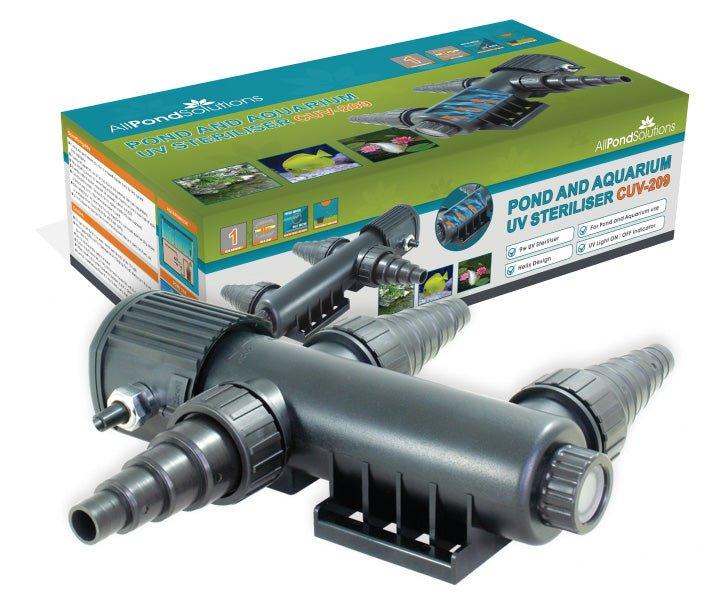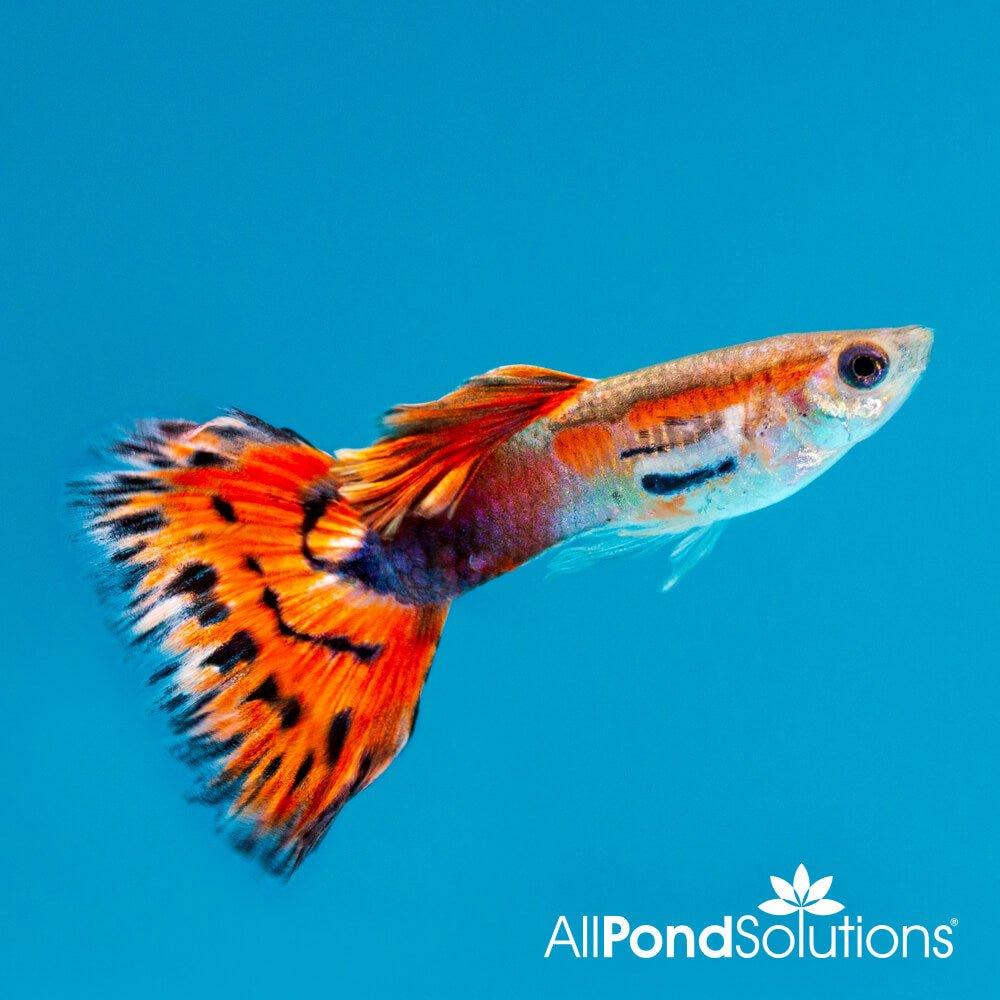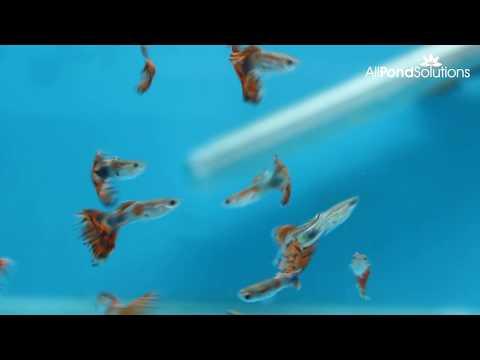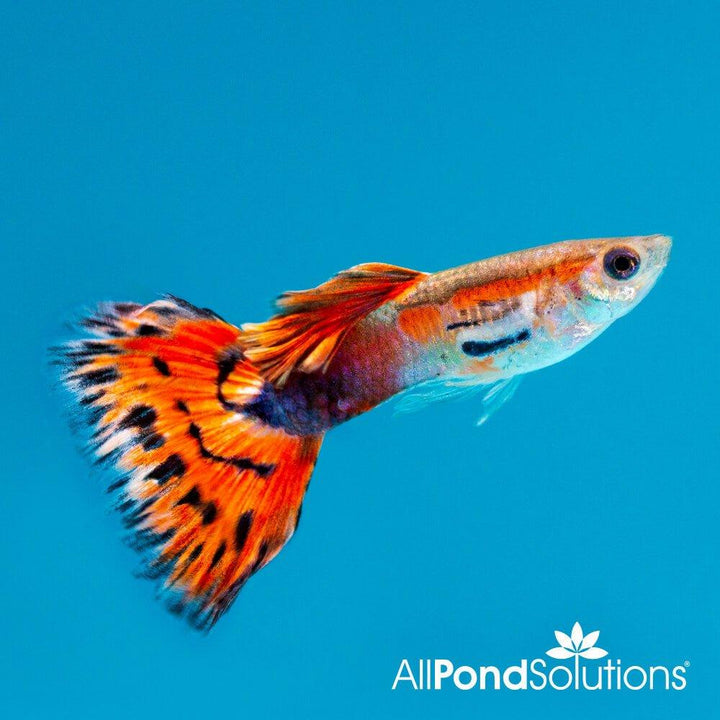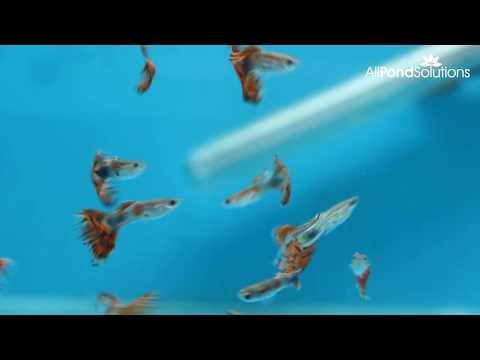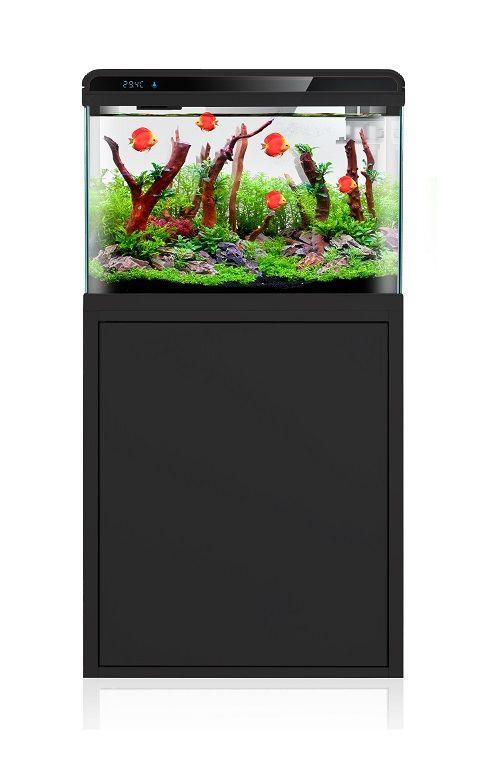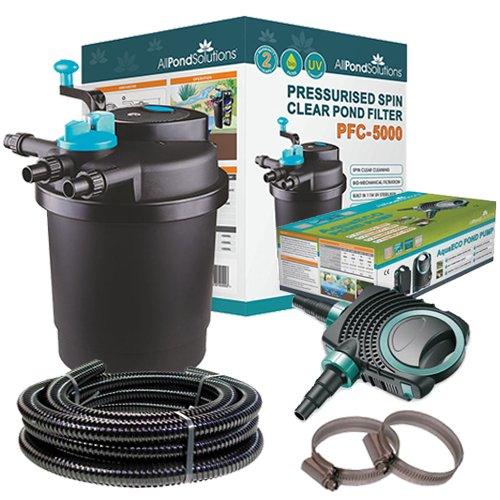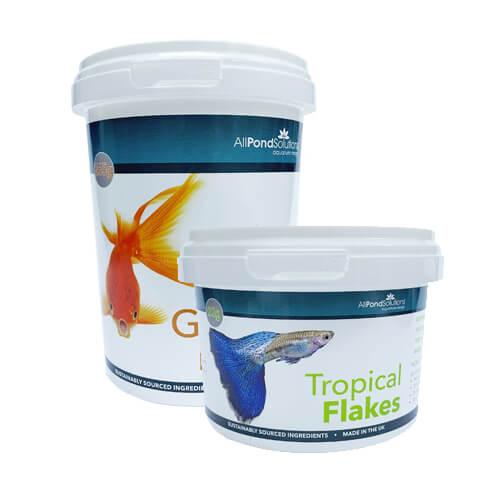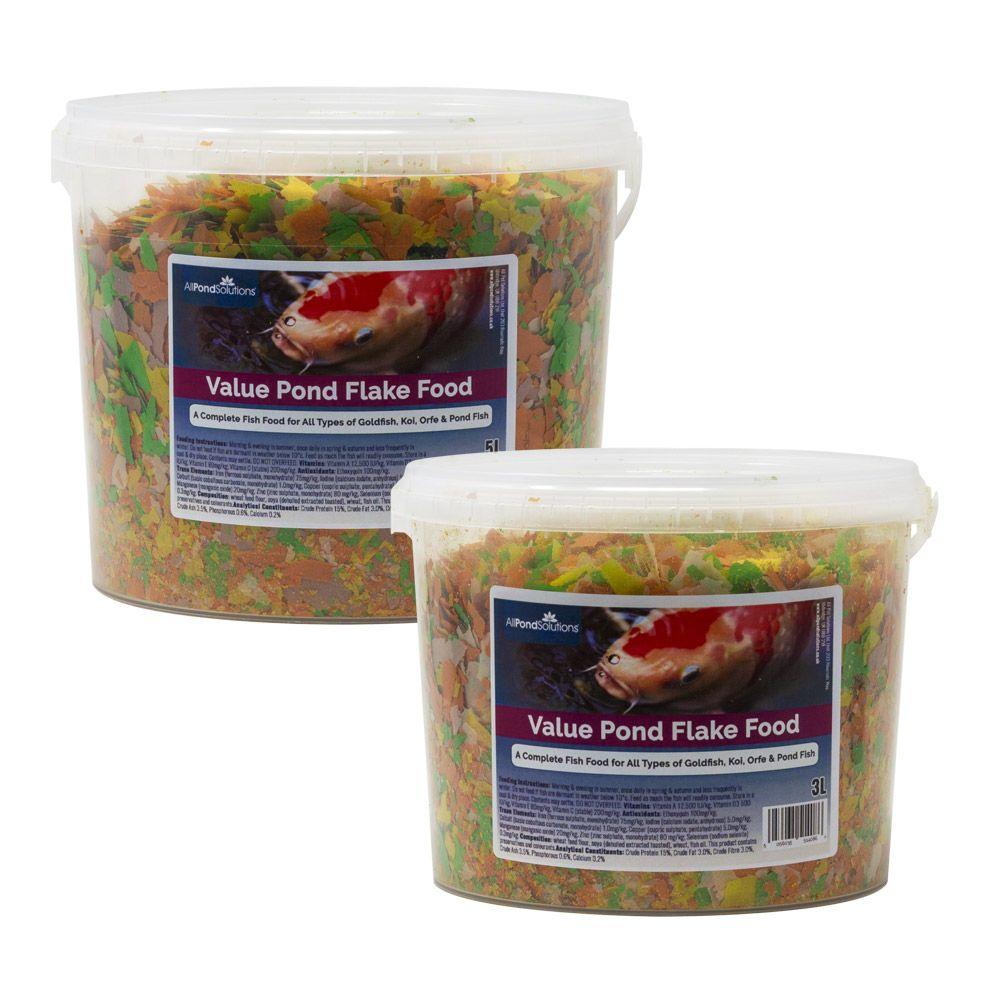Scientific Name: Poecilia reticulata
Please note – The image used above is for illustration purposes only; Size, colour and sex may vary. Many of our livestock species are sold as juveniles and have not yet reached their full size and colour potential. If you have any concerns about the size or colour of the livestock you wish to order, please contact our livestock team via our support centre before placing your order. Due to the large quantities of livestock orders daily, the livestock team will are unable to select fish / shrimp to meet specific gender or aesthetic needs.
How easy are they to care for?
Ideally added to a mature aquarium, once added they will usually thrive if given a varied diet. Due to their placid nature they are best kept with other timid species. Avoid high flowing water and acidic or soft conditions
How large can they grow?
6cm
Where in the world are they from?
Their original distribution is considered to cover Venezuela, Guyana, Suriname, French Guiana plus the islands of Trinidad and Tobago, Barbados, Antigua and Barbuda and the Netherlands Antilles.
What is the ideal number to keep together?
They will happily live in large groups, as with other livebearers it is best kept with a 2-3 females to every male.
What water conditions do they require?
Ideally slightly alkaline water conditions are provided between 7.0pH - 8.0pH. Temperatures should range between 24-26°C.
What should you feed them?
Guppies should be fed a variety of flake, frozen, freeze dried and live foods for a varied diet. Being omnivores they will happily accept a wide range of foods, although for best results green foods should be offered in abundance.
How compatible are they with other fish?
A generally peaceful fish, however it should be kept mostly with fish that can tolerate its more alkaline requirements.
Can they be bred in captivity?
These fish like all livebearers will readily breed in captivity, it is more a matter of when not how it will happen if you have a mix of males and females.
